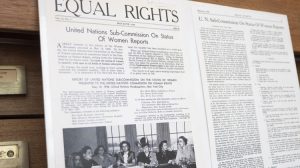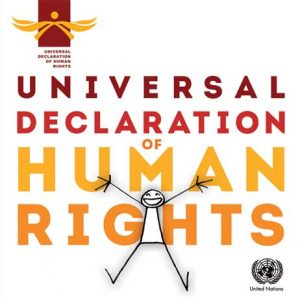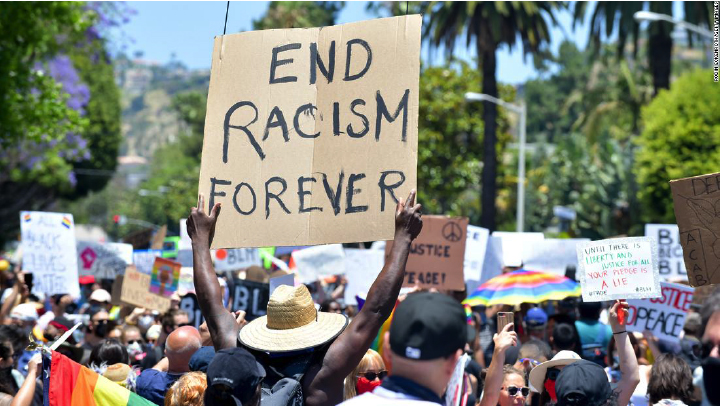Human Rights and Mobile Critical Thinking Tools
Article I of the United Nations Universal Declaration of Human Rights states: All human beings are born free and equal in dignity and rights. They are endowed with reason and conscience and should act towards one another in a spirit of brotherhood.
 All humans deserve to have and enjoy equality in dignity and rights. For equality, all humans must have equal access and opportunity to practical tools and methods for critical thinking with their daily actions. Critical thinking methods and skills provide equality for the full realization of participation in the greater human community locally and globally. Methods and tools that assure each human an equal opportunity for active and high impact participation in education, with healthcare and for their greater community. The purpose of this guide on Mobile Thinking Tools is to model the importance of putting theory into practice with practical methods, how to learn the methods, and models of excellence. Concurrently the guide connects the research behind the practical methods thoughtfully using them in practice for understanding both the tools (the how) and the research (the why).
All humans deserve to have and enjoy equality in dignity and rights. For equality, all humans must have equal access and opportunity to practical tools and methods for critical thinking with their daily actions. Critical thinking methods and skills provide equality for the full realization of participation in the greater human community locally and globally. Methods and tools that assure each human an equal opportunity for active and high impact participation in education, with healthcare and for their greater community. The purpose of this guide on Mobile Thinking Tools is to model the importance of putting theory into practice with practical methods, how to learn the methods, and models of excellence. Concurrently the guide connects the research behind the practical methods thoughtfully using them in practice for understanding both the tools (the how) and the research (the why).
Human Rights Fostering and protecting global human rights require macro-level innovative methodologies. The use of mobile thinking tools is a state of the art methodology that is applicable to a multitude of diverse settings and social problems. Not only would mobile thinking tools allow grassroots organizations to mobilize people and advance their agendas, but they would also allow for an integration of an organization’s sociopolitical actions with policy. For instance, human rights is a term that many understand on the surface, but few understand how to actually define, preserve, and advocate for them. Thinking tools, however, allow people to methodically identify, strategize, and take action to protect human rights, for example, by using an inclusive methodology. This methodology allows for persons (top-down and down-up) to engage, interact, critically think, problem solve, and implement ideas as a community. The resulting process is formulated to yield results related to policy change and subsequent implementation of such policy.
Fostering and protecting global human rights require macro-level innovative methodologies. The use of mobile thinking tools is a state of the art methodology that is applicable to a multitude of diverse settings and social problems. Not only would mobile thinking tools allow grassroots organizations to mobilize people and advance their agendas, but they would also allow for an integration of an organization’s sociopolitical actions with policy. For instance, human rights is a term that many understand on the surface, but few understand how to actually define, preserve, and advocate for them. Thinking tools, however, allow people to methodically identify, strategize, and take action to protect human rights, for example, by using an inclusive methodology. This methodology allows for persons (top-down and down-up) to engage, interact, critically think, problem solve, and implement ideas as a community. The resulting process is formulated to yield results related to policy change and subsequent implementation of such policy.
Human Rights and Social Justice
 In 1948, the United Nations General Assembly issued the Universal Declaration of Human Rights (UDHR) in an attempt to bring attention to the inalienable rights of all people in all nations as agreed upon by its signatories (United Nations, 1948). Human rights are broadly defined as the “basic rights and freedoms that all people are entitled to regardless of nationality, sex, national or ethnic origin, race, religion, language or other status” (Amnesty International USA, 2015, para. 1). The Universal Declaration of Human Rights contains 30 articles that address civil, political, economic, social, and cultural rights of people worldwide (United Nations, 1949). Article I of the UDHR states that all humans are equal in dignity and worth. Articles 2 -15 address political and individual freedoms (e.g., right to life, right to liberty, right to live free of enslavement, right to live free of torture, right to equal protection of the law, right to seek asylum, right to a nationality, etc.). Articles 16-27 address economic, social, and cultural rights (e.g., right to marriage as adults, right to own property, right to religious expression, right to freedom of opinion and expression, right to social security, right to work, right to an education, right to a just standard of living, etc.). Articles 28 and 29 address collective rights among and between nations (i.e., right to a social and international order; right to live a full life within the confines of the law). Last, Article 30 states that no one can take away a person’s human rights (United Nations, 1948).
In 1948, the United Nations General Assembly issued the Universal Declaration of Human Rights (UDHR) in an attempt to bring attention to the inalienable rights of all people in all nations as agreed upon by its signatories (United Nations, 1948). Human rights are broadly defined as the “basic rights and freedoms that all people are entitled to regardless of nationality, sex, national or ethnic origin, race, religion, language or other status” (Amnesty International USA, 2015, para. 1). The Universal Declaration of Human Rights contains 30 articles that address civil, political, economic, social, and cultural rights of people worldwide (United Nations, 1949). Article I of the UDHR states that all humans are equal in dignity and worth. Articles 2 -15 address political and individual freedoms (e.g., right to life, right to liberty, right to live free of enslavement, right to live free of torture, right to equal protection of the law, right to seek asylum, right to a nationality, etc.). Articles 16-27 address economic, social, and cultural rights (e.g., right to marriage as adults, right to own property, right to religious expression, right to freedom of opinion and expression, right to social security, right to work, right to an education, right to a just standard of living, etc.). Articles 28 and 29 address collective rights among and between nations (i.e., right to a social and international order; right to live a full life within the confines of the law). Last, Article 30 states that no one can take away a person’s human rights (United Nations, 1948).

Protest signs at the All Black Lives Matter Solidarity March on June 14, in Los Angeles. Rodin Eckenroth/Getty Images
Universal Declaration of Human Rights: Article 26
- (1) Everyone has the right to education. Education shall be free, at least in the elementary and fundamental stages. Elementary education shall be compulsory. Technical and professional education shall be made generally available and higher education shall be equally accessible to all…
- (2) Education shall be directed to the full development of the human personality and to the strengthening of respect for human rights and fundamental freedoms…
- (3) Parents have a prior right to choose the kind of education that shall be given to their children.

